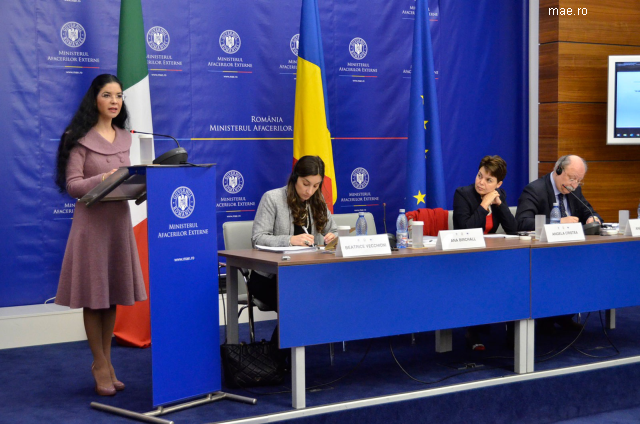Debates on the multi-speed Europe
The conference dubbed “Ever Closer Union – The Legacy of the Treaties of Rome for Todays Europe was held in Bucharest on Monday.

Mihai Pelin, 28.03.2017, 13:19
The Romanian Foreign Ministry and the European Commission representation in Bucharest on Monday held a debate on the EU’s evolution. Attending was also Romanian Minister for European Affairs, Ana Birchall. She said that in the ten years that have elapsed since its EU accession, Romania had tried to show that it was a credible partner dedicated to European efforts. She recalled the opinion polls conducted at European level showing that the Romanians’ confidence in the EU had constantly been above the European average. The Minister for European Affairs went on to say that Romania would actively participate in any project aimed to strengthen the Union’s unity and would further be a firm advocate of the initiatives of cohesion and bridging the development gaps among the member states.
On the other hand, Ana Birchall said that the EU’s position on the international scene would be weakened if artificial barriers were imposed dividing the member states into groups according to the notion of a “multi-speed Europe”, constantly put forth by EU leaders, a notion that has recently been given up. The Rome Declaration signed by the 27 EU member states last week highlights the Union’s unity. However, the Rome Declaration also says, “We will act together at different paces and intensity where necessary”.
Ana Birchall: “Romania will actively participate in any project meant to strengthen the unity of our big European families. We cannot imagine the future outside the EU. No EU reform process must impair its basic values and freedoms. However, there is the risk of a reform focusing on moving forward in restricted formats and of the rights of some of the EU citizens being affected.”
Attending the debates, the head of the European Commission Representation in Bucharest, Angela Cristea, has explained that at present the EU member states and the European institutions are using the same terms but with different meanings in their debates on the future.
Angela Cristea: “One of the EU’s strong, fundamental values is the rule of law. Everybody promotes the rule of law and the basic rights, but does everybody have the same definition, the same understanding of those concepts? It would be helpful for us to make sure we understand the same concepts. That is also the purpose of the five scenarios on the EU’s future, to make sure that they give rise to debates on various perceptions of what we expect from the EU”
Romania has opposed a multi-speed Europe from the very beginning. A few days ago, president Klaus Iohannis warned that if that scenario had further been pursued, the EU would have taken steps back and the East European states would have been the losers.
(Translated by Anamaria Palcu)






























